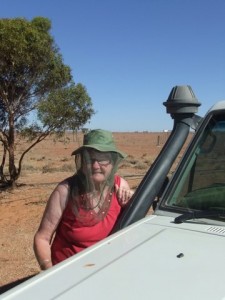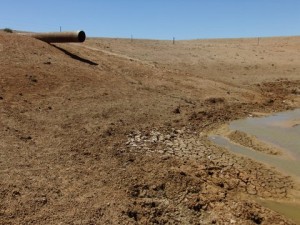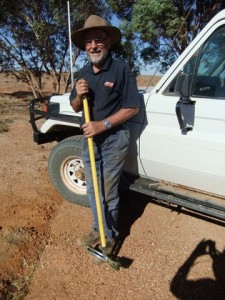Women say Share The Work and Wealth:
Let us not indulge too much in platitudes this International Women’s Day because, although we can be smug about real progress over the past quarter century in achieving equality in law, the one big issue – violence – still impacts on women and girls.
We could examine newspaper clippings from the last few weeks alone to wipe that smug look right off our faces.
Women globally are likely to be beaten, raped, abused or mutilated in their lifetimes according to the head of the UN women’s watchdog. And by the men they know intimately or family members. It’s rarely strangers.
The UN Commission on the Status of Women in New York has demanded action to end the violence claiming it is “the most pervasive violation of human rights and dignity’’.
“This pandemic strikes the lives of millions of women, fractures families and communities and impedes development, costing countries billions of dollars each year in healthcare costs and lost productivity,’’ says Michelle Bachelet of the commission’s plea.
She quotes data from the World Health Organisation which showed that an average of 40 per cent – and up to 70 per cent of women in some countries – face continuing violence in their lifetimes.
And, here in our so-called safe society, SAPOL domestic violence units, growing numbers of women’s shelters, burgeoning social welfare costs and continuing hospital admissions prove that nothing has stopped the local violence epidemic. This frightening behaviour not only injures women physically, it crushes their spirit to achieve and diminishes their life chances.
There was news from Kathmandu in Nepal in January that hundreds of protesters gathered outside the Prime Minister’s residence for a 10th day to oppose violence against women there. They demanded that authorities do more to punish those involved in crimes against women and to do more to protect women.
And, who of us wasn’t emotionally distraught at the horrific rapes on a bus in India where an unfortunate young student, doing nothing but sitting there with her boyfriend, was repeatedly raped by a pack of men and then, naked, thrown from the bus. She later died of her injuries. It triggered rounds of protests by women in India and we can only hope for change and that the perpetrators will be found guilty and punished severely for what was not only rape, but murder.
And speaking of murder. In Russia, each year, 14,000 women are murdered, mostly by men they know. Shall I continue? Or change the subject to another long list of needs for women.
Such as endemic poverty in masses of women’s lives. World-wide poverty in third world countries is beyond our understanding and the powerlessness of faceless, voiceless women in a male-dominated society in some Middle Eastern and African countries is unfathomable. This is because Australian women mostly have their own cars, build up their own careers, make choices, buy property and whether married or not, forge their own dreams into reality.
When we speak of women in power, we have Prime Minister Julia Gillard as No. 1 on The Australian newspaper’s list of the 50 most influential figures in politics, but there are fewer than one in five women in the other 49 spots. Tony Abbott’s formidable chief of staff, Peta Credlin, comes in at 21 and wields enormous powers in the Opposition camp.
At the other end of the spectrum, in suburbia, there is one role of women here in OZ which we must celebrate on International Women’s Day. Motherhood. These are the women who sacrifice so much in terms of personal financial gain, career opportunities and independent pursuits to make choices to leave work or work part-time to raise their families – and still in about 50 per cent of households – be partners. These women need to be honoured on IWD, too. A woman’s work isn’t all about power and prestige, a lot of it is being a taxi-driver to and from school and children’s sporting pursuits. To these women who juggle both roles heroically, access to and the cost of child care are crucial to their life chances – and the ability to build up their own superannuation fund through paid work. Flexibility at work is still a dream for many women in low-paid jobs. It should be mandatory for single mothers without a supportive partner.
Then there is sexual harassment, a difficult destabilising problem for many women in the paid workforce. (Read this week’s paper for validation)
And it seems a woman’s work is never done if one looks at the lives of the sandwich generation, to the Boomers, who find their adult children still bedding at home partaking of all the perks parents can offer. Sometimes, they even pay board and help around the house if mum works outside the home.
These middle-aged mums generally carry the caregiving role as their parents age and make that painful transition from independent living to residential care. They would be in charge of transporting frail parents to countless doctors and specialists appointments for parents.
As women age themselves, they care for their male partners, who will probably die before them at a rate of 2/1– and many will find themselves in poverty. Because their life choices have meant they have not built up their own superannuation nestegg. The average older woman will retire from the work force with about $32,000 in superannuation. Most frail aged women will find themselves alone and on an age pension. And it is likely poverty will stalk their older lives.
One woman whom we deserve to listen to is Westpac chief executive Gail Kelly who is No. 46 on that list of influential women. She addressed the Sydney IWD gathering about superannuation and companies with gender equality programs.
She leads by example claiming Westpac has increased the representation of women in its senior ranks – the top 4000 of its 37,000 staff – from 32 per cent in 2010 to 40 per cent by the end of 2012.
She announced the bank had a new goal of boosting this to 50 per cent by 2017. Even better news is that 62 per cent of Westpac’s workforce is on some kind of flexible working arrangement, including part-time, nine-day fortnights, job sharing or working from home one day a week. This is expected to grow to 82 per cent within a few years. The results are clear in a 90 per cent return-to-work after parental leave.
Sex Discrimination Commissioner Elizabeth Broderick, says there should be no complacency that gender equity is finished business even with a head of state who is a woman and a female Prime Minister.
“There is this view that gender equality is finished business, but it absolutely is not. What we don’t have is a critical mass of women sitting under this, and that’s what we need,’’ she says.
She reckons men need to shoulder their share of caring responsibilities and until they do, women will continue to be under-represented at the apex of business and politics.
And the big missing link to the whole chain is during those career building/child rearing years men must carry an equal share of household and child rearing responsibilities and that should include cleaning the bath, and the toilet, shopping and cooking and feeding offspring.
Then we can celebrate IWD together, men and women, because the opportunities, too, will be shared along with the childcare costs, to enable women to earn and build wealth during their productive lives.


